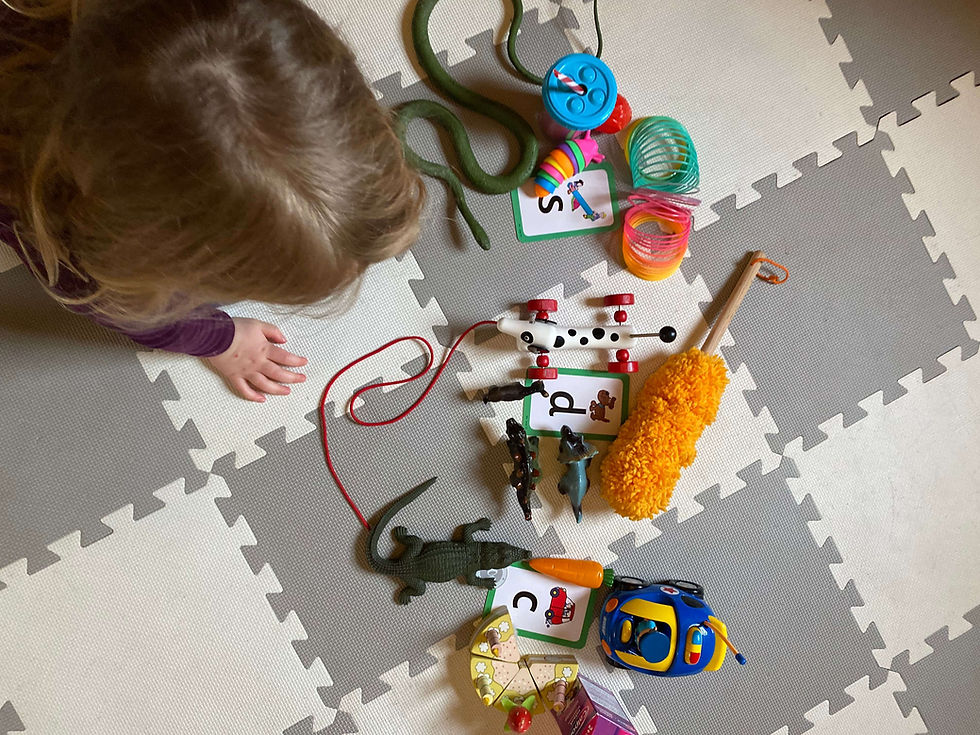POSITIVE AFFIRMATIONS FOR CHILDREN
- HEAD OF THE HIVE

- Feb 16, 2024
- 3 min read
Research suggests that saying positive statements about yourself causes the reward centres in our brains to light up. Affirmations are therefore a fantastic way to create and nurture self-worth and confidence in your child, equipping them with the skills and confidence to tackle challenges and seize opportunities throughout life.

Why are positive affirmations important?
It is believed that our self-beliefs are formed in childhood from our experiences and the beliefs of the adults around us. So, it is during this time that a child can develop a positive self-image and self-love. Using positive affirmations with your child is a powerful way to wire in those positive beliefs about themselves that will serve them into adulthood.
Other benefits of positive affirmations:
A decrease in stress
Reduced negative thinking and self-criticism
Increases motivation
Builds confidence
Helps to cope with strong emotions and challenges
Cultivates a growth mindset
Examples of positive affirmations:
I am strong
I am brave
I am kind
I am enough
I am important
I am smart
I am beautiful
Some examples of how to use positive affirmations with your child:
Saying them together: Practise saying positive affirmations with your child in front of the mirror each morning or evening as part of their daily routine. You could come up with a family song of affirmations specific to your child and add actions for each to make it fun and memorable.
Arts and craft: Encourage your child to create a piece of artwork with their affirmations written down. This could be as simple as drawing around their hand and filling it in with their self affirmations and decorating it.
Superpowers: You could pick an affirmation of the day and focus on it throughout. It could be their superpower for the day and they can put on their 'brave' superhero cloak in the morning.
Listening to music: Some examples are...
This is Me - The Greatest Showman
A firm favourite in our household and sure to get everyone showing off their 'power dance' moves. It's a positive song about being proud of who you are, ignoring other people's opinions of you and celebrating being unique.
Roar - Katy Perry
A song about bravery, standing up for yourself and expressing your voice.
Love My Life - Robbie Williams
This is a song full of affirmations - "I love my life. I am wonderful. I am magical. I am wonderful. I love my life. I am powerful. I am beautiful. I am free."
Breathing exercises: Combining breathing techniques and positive affirmations you can help support your child in reframing their outlook, for example overcoming a fear they may, and bringing about a sense of calm and a focus on their wellbeing. Before each deep breath they say their positive statement out loud e.g. I am brave.
Family dinner time: If you are able to have a family meal together, then you could make it a tradition to take it in turns to say what qualities each person posses that you love. Eg. I love how kind/resilient/brave you are. You demonstrated this when...
Little notes: Leave a note or a post-it note in their school rucksack, on their pillow for when they go to bed, by their breakfast etc. affirming their qualities.
Remember, the more your child practises using positive affirmations about themselves then the more natural those thoughts will become. Repetition is key!
References:
Self-affirmation activates brain systems associated with self-related processing and reward and is reinforced by future orientation. Christoper N. Cascio et al. 2015
Cohen GL, Sherman DK. The psychology of change: self-affirmation and social psychological intervention. Annu Rev Psychol. 2014
Steele, C.M. (1998). The psychology of self-affirmation:Sustaining the integrity of the self.
%20(2000%20%C3%97%202000%20px)%20(5).png)




Comentarios